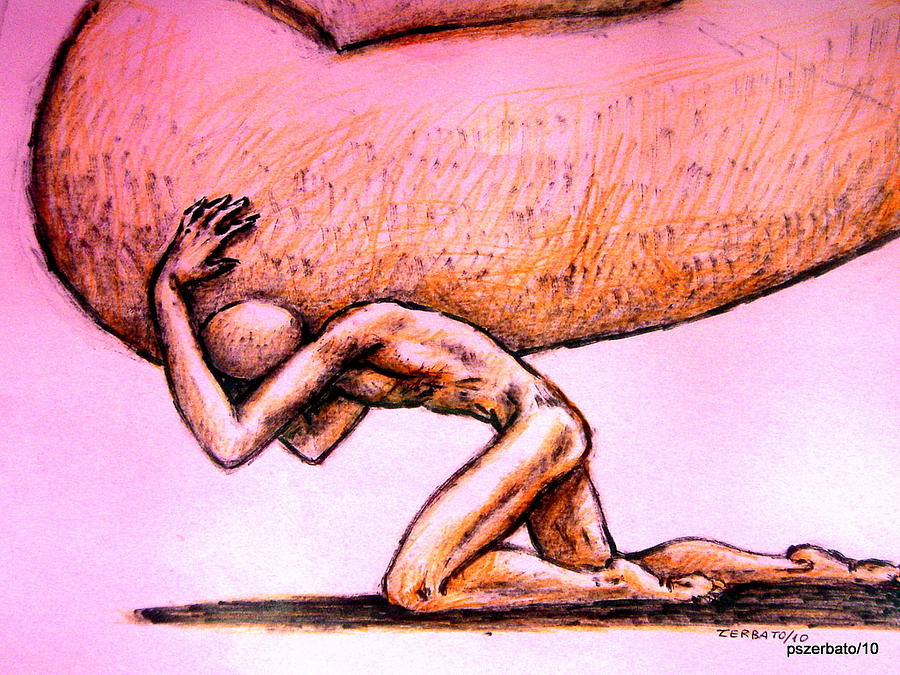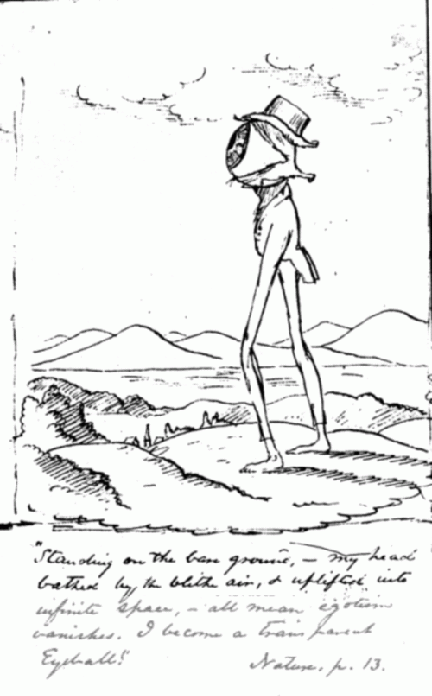Existentialism:
Samuel Beckett's
Waiting for Godot is full of fast-paced dialogue but in all that wordiness, the characters do not actually say much. Existentialism is an analysis of human existence and how individuals, through acts of will, are ultimately responsible for their own development. It has also been said that existentialism is "thinking about existence." This aspect of the philosophy especially relates to
Waiting for Godot. The characters talk incessantly but without saying anything of real substance. By constantly talking about absurd things or in a confusing manner, they are freed from their thoughts and they do not have to think about their existence or make any real decisions in their lives.
[Long silence.]
Vladimir: Say something!
Estragon: I'm trying.
[Long
silence.]
Vladimir: [in
anguish] Say anything at all!
Estragon: What do we do now?
Vladimir: Wait for Godot.
Estragon: Ah!
[Silence]
Estragon: This is awful! (Waiting for Godot act II)
Silences play an important role in the play. The characters seem to fear silence because it would force them to think about their life, their position, their actions, and their existence. The characters try to avoid existential thinking but through this, Beckett is able to make a powerful statement about human existence and its futility.
Nihilism:
Waiting for Godot drips of nihilistic philosophies and undertones. Nihilism states that nothing can be known, everything is meaningless and that nothing can be believed in. Beckett especially emphasizes that nothing can be known in
Waiting for Godot. Vladimir and Estragon do not know anything. They do not know what day it is, what time it is, or what they did the day before. They do not know if events really happened or if they were a dream. They do not know what Godot looks like. They do not know if the road with the tree is the right place to meet him. Estragon seems the be even more confused than Vladimir and does not believe him.
Vladimir: The tree, look at the tree.
[Estragon looks at the tree.]
Estragon: Was it not there yesterday?
Vladimir: Yes of course it was there. Do you not
remember? We nearly hanged ourselves from it. But you wouldn’t. Do you not
remember?
Estragon: You dreamt it. (Waiting for Godot act II)
Vladimir and Estragon are unreliable and make the audience question what is real and if any of these events are actually happening. They do not seem to have a purpose. They do nothing. They say nothing substantial. Nothing changes in their world and they do not ever do anything. They are inactive, skeptical, and know nothing. They are nihilists whether they chose to be or if their situation forced it upon them.
Absurdity:
Waiting for Godot is a truly absurd work of literature. The dialogue and story-line are unique to say the least. The made up words and crazy characters add to the confusion.
Waiting for Godot pioneered the "Theatre of the Absurd" genre. It is characterized not by rigid constructs and logical argument but by irrational thought and illogical speeches.
"I resume but not so fast I resume the skull fading fading fading and concurrently simultaneously what is more for reasons unknown in spite of the tennis on on the beard the flames the tears the stones so blue so calm alas alas on on the skull the skull the skull" (Waiting for Godot act II)
The first time the character Lucky speaks in the entire play is to utter a long speech like the except above. It is illogical and full of repeated nonsense. It is truly absurd. Through all of this confusion though, there is sense of beauty and truth to what Beckett is trying to say. What is Beckett trying to say? No one knows. There are many theories and interpretations of the play but he crafted it in such a way that it does not fit any one mold perfectly. It is not just a nihilistic play. It is not just a Christian allegory. It is the absurdity of the play that keeps it from being interpreted in one set way.
_02.jpg)








